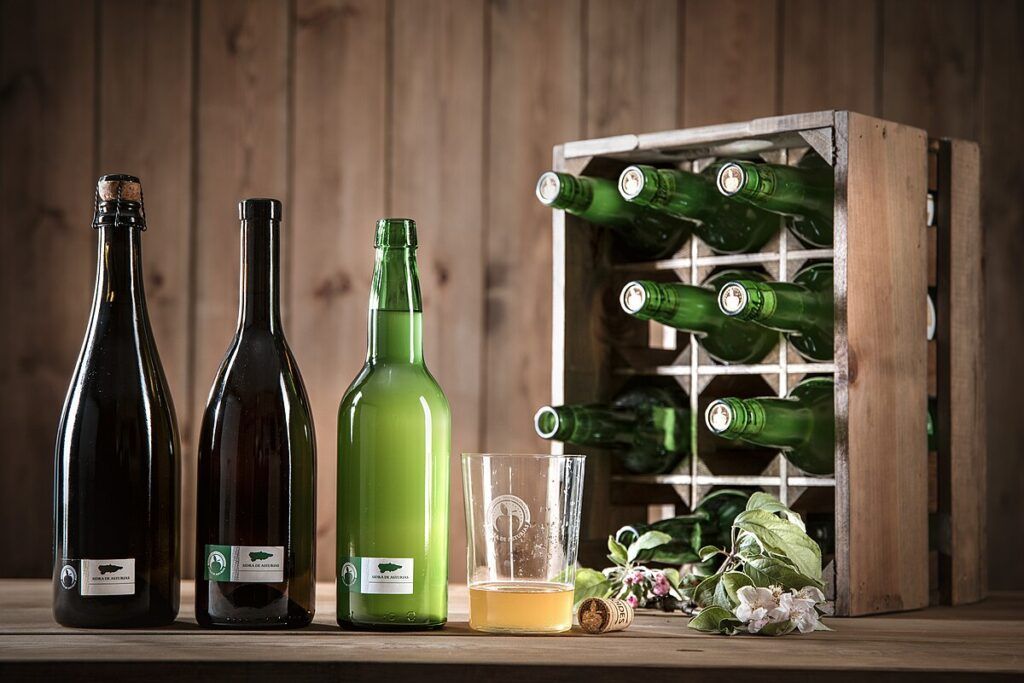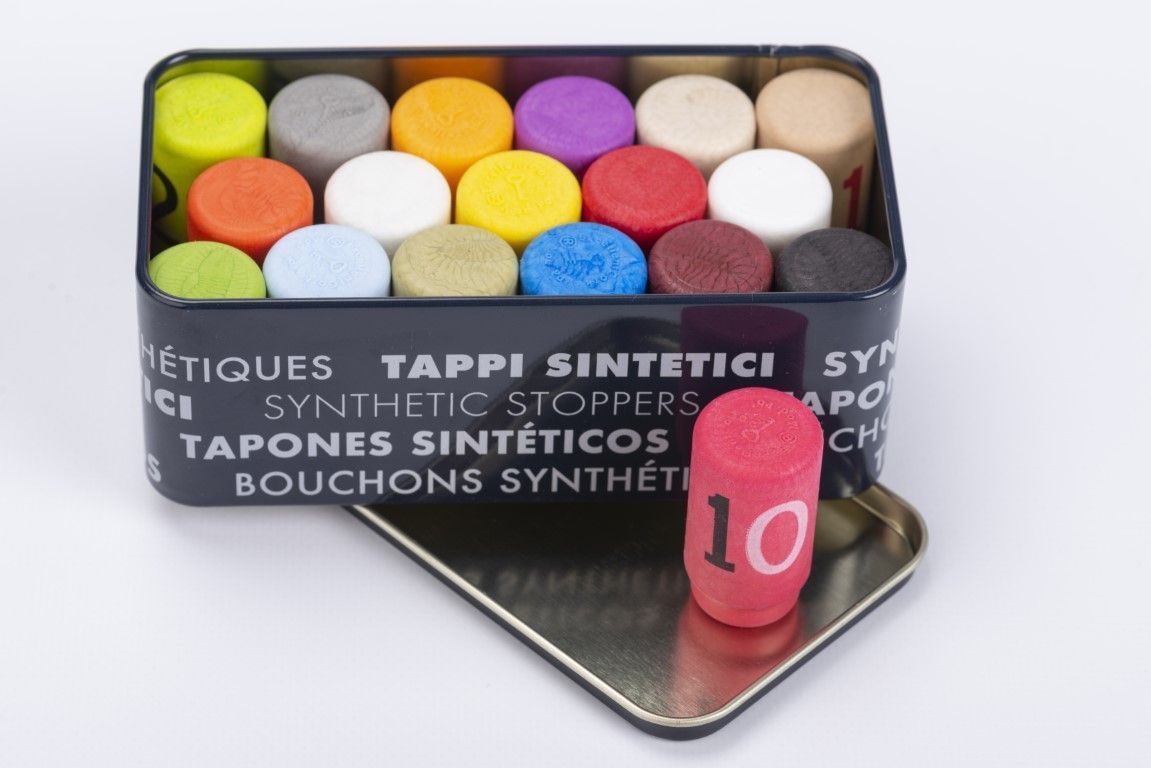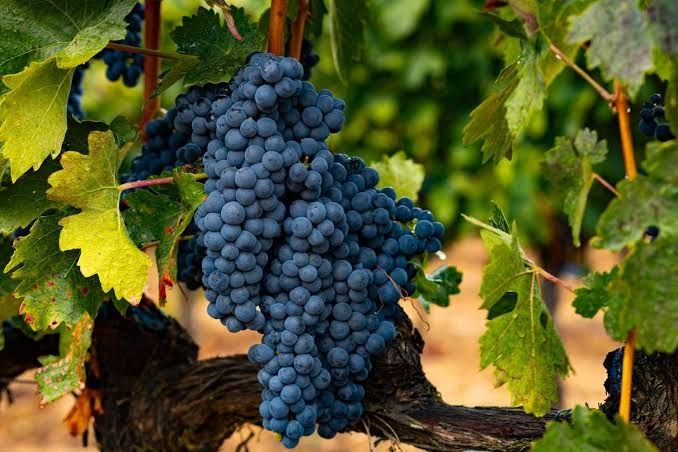Do you enjoy beverages that are not only delicious but also healthy? If so, you’ve probably heard of cider, an alcoholic beverage with low alcohol content made from fermented apple juice.
Cider in Spain is used for any occasion and celebration, thanks to its flavor and its digestive benefits. Additionally, it provides several vitamins.
At Excellent Cork, we are experts in corks for wine and spirits. That’s why today we bring you the following text where we talk about this beverage that is so important to Spaniards.
History and tradition of cider in Spain
You might be wondering how long this famous beverage has existed. The history and tradition of cider in Spain is interesting and captivating, especially in the regions of Asturias and the Basque Country, where it is considered an emblematic drink and an integral part of the local culture.
Its origins date back to ancient times, however, although the exact origin is difficult to pinpoint, there are records of apple-based fermented beverages being consumed since Roman times on the Iberian Peninsula.
Over time, commercial cider houses began to be established, and it became a popular beverage at local festivities and celebrations.
Main cider-producing regions
It is clear that Asturias and the Basque Country are the two main cider-producing regions. Asturias is the most recognized worldwide for its quality, but also for the social connection with the region, which is part of the Asturian identity, to the point where Cider Day and the Natural Cider Festival of Gijón are celebrated there.
In the Basque Country, cider is also part of the culture, locally known as “Sagardoa”. The celebrated festivals are Sagardo Eguna and Txotx Season.
Feel free to attend one of these celebrations! There are also other cider-producing regions in Spain on a smaller scale, such as Galicia and Cantabria.
Types of cider in Spain
You might be wondering what types of cider there are or which is the best cider in Spain, and considering the variety of producing regions, there are different types of ciders in terms of flavor, production method, and tradition.
Asturian cider
Asturian cider has no additives or added carbon dioxide, it is naturally fermented. Its apple and other fruit aromas contrast with its dry and acidic taste; to consume it and improve its flavor and aroma, it is poured from a considerable height to aerate it.
Basque cider
Basque cider is naturally fermented, although it is usually drier and more acidic than Asturian cider, it is served directly from the barrel in cider houses during the Txotx season.
Galician cider
Galician cider is naturally fermented without the addition of sugars or carbon dioxide. It is made with local apple varieties, many exclusive to the region. Its flavor is milder and fruitier compared to Asturian and Basque ciders.
Differences between natural cider and sparkling cider
Natural cider is made through the natural fermentation of apple juice without adding sugars or carbon dioxide. Fermentation usually takes place in wooden barrels or stainless steel tanks. Its taste is dry with noticeable acidity.
On the other hand, sparkling cider is made through a double fermentation, which can be done in the bottle (traditional method) or in large tanks (Charmat method). Its flavor is sweeter than natural cider, lighter, and less complex.
The best Asturian cider brands
Asturias is famous for its cider, and there are many well-known brands that produce high-quality cider. Here are some of the best Asturian cider brands:
- El Gaitero Cider: one of the most internationally known brands. El Gaitero produces both natural and sparkling cider, the latter is sweet and effervescent, ideal for celebrations.
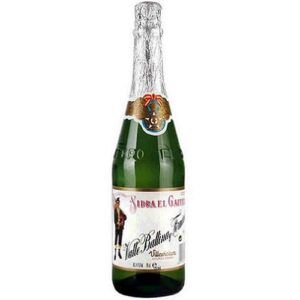
- Trabanco Cider: highly appreciated by natural cider lovers, it has a dry and fruity taste, with a well-balanced acidity.
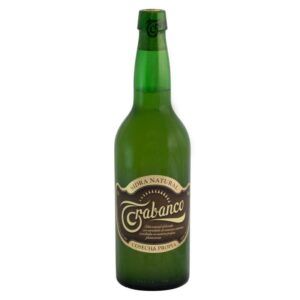
- Mayador Cider: uses a careful selection of apple varieties to ensure the quality and authenticity of its ciders. It has a dry and fruity taste with good acidity.
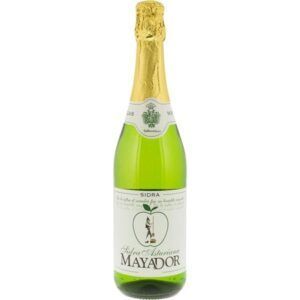
- Valverán Cider: was one of the first in Spain to produce ice cider. With its innovative techniques, it is a reference brand in the world of premium cider.

The best Basque cider brands
There are several Basque cider brands. Here are the best:
- Bereziartua Cider: one of the oldest and most respected cider houses in the Basque Country. It has a fresh, dry, and slightly acidic taste. It is known for its consistent quality and traditional production method.
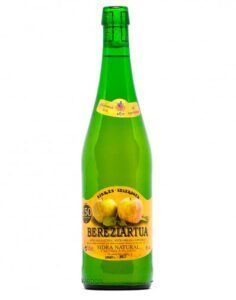
- Isastegi Cider: a relatively young but highly respected cider house, it has a dry taste with a hint of acidity, made with traditional methods.
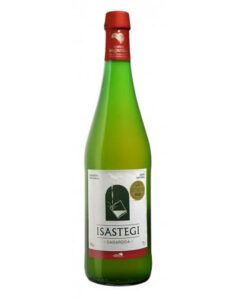
- Zapiain Cider: one of the most emblematic cider houses in the Basque Country, it has a perfect balance between acidity and sweetness and a complex flavor profile.
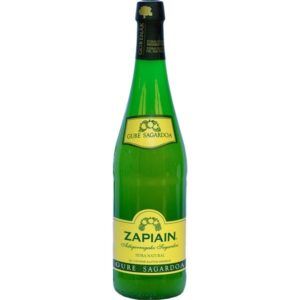
The best Galician cider brands
- Maeloc Cider: one of the most well-known and commercially successful brands in Galicia. Its natural cider has a balanced and fruity taste.
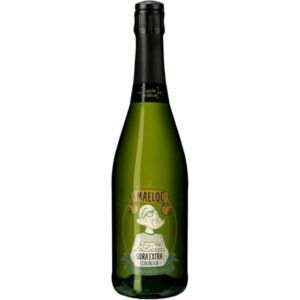
- Ribela Cider: stands out for its commitment to quality and tradition in cider production, it is artisanal and made with native Galician apple varieties.
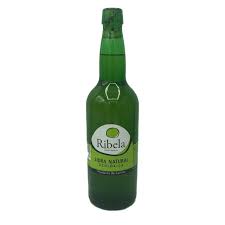
- Camino Cider: combines tradition and innovation to produce high-quality cider using Galician apples.
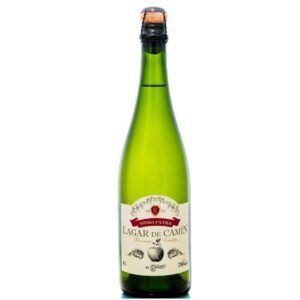
Comparison of the best ciders in Spain
Taking all this information into account, you might wonder, what are the best cider brands in Spain? Without a doubt, all the brands stand out for their quality and production methods, so determining the best cider brands can be subjective, as it depends on individual tastes and the type of cider preferred.
In Asturias, the best brand that produces natural cider is Trabanco; if you prefer sparkling and sweet cider, we recommend El Gaitero; and for a more artisanal and traditional option, Mayador is one of the best choices.
In the Basque Country, if you prefer natural cider, one of the best options is Zapiain; for sparkling and sweet cider, we recommend Berezko. If you prefer an artisanal and more traditional cider, the best option is Bereziartua. Finally, in Galicia, the most recognized natural cider is Maeloc; for a sparkling cider, choose Ezequiel.
How to choose the best cider for each occasion
How do you know which is the best cider for a celebration, dinner, or social gathering? Here are some factors to help you select the right cider depending on the type of event or meal.
- Formal dinner or celebration: an ideal option is a sparkling cider like Ezequiel or El Gaitero, as they are perfect for toasting or accompanying appetizers and light dishes.
- Traditional or casual meal: a recommended cider is natural cider, as it is suitable for more substantial meals and to enjoy at an informal meal.
- Informal occasion or social gathering: the recommended ciders are natural or sparkling. Depending on the tone of the gathering, sparkling can add a festive touch, while natural can be more relaxed.
Frequently asked questions about cider in Spain
If you still have questions, don’t worry. Here is a summary of what has been discussed and the most frequently asked questions about Spanish cider.
What is the difference between natural cider and sparkling cider?
The main difference lies in their production process and final characteristics. Natural cider is made through the natural fermentation of apple juice without adding sugars or carbon dioxide. It is fermented in wooden barrels or stainless steel tanks, resulting in a dry taste with noticeable acidity. On the other hand, sparkling cider is made through double fermentation, which can be done in the bottle (traditional method) or in large tanks (Charmat method). Its taste is sweeter, lighter, and less complex than natural cider.
Where is the best cider in Spain produced?
Asturias is widely recognized for producing the best cider in Spain. Its natural cider production is of high quality, with a deep and authentic taste. The region has a rich cider tradition and is famous for its festivities and events dedicated to this beverage.
What factors determine the quality of cider?
A high-quality cider is characterized by:
- Use of high-quality apples: Specific and well-selected varieties.
- Meticulous production process: Controlled fermentation and traditional methods.
- Balanced flavor profile: Complexity in flavor, with a good combination of sweetness and acidity.
- Proper texture: Pleasant mouthfeel.
- Attractive visual presentation: Good appearance and packaging design.
What type of cider is suitable for different occasions?
- Formal dinner or celebration: Opt for a sparkling cider like Ezequiel or El Gaitero, perfect for toasting and accompanying appetizers or light dishes.
- Traditional or casual meal: Natural cider is ideal for substantial meals and enjoying in a relaxed atmosphere.
- Informal occasion or social gathering: Both natural and sparkling cider are suitable. Sparkling adds a festive touch, while natural is more relaxed and versatile.
How is cider properly served?
The way cider is served varies depending on the region:
- Asturian cider: It is poured from a considerable height to aerate it and enhance its flavor and aroma.
- Basque cider: It is served directly from the barrel in cider houses during the Txotx season.
What are some of the most recognized cider brands in Spain?
- Asturian: El Gaitero Cider, Trabanco Cider, Mayador Cider, Valverán Cider.
- Basque: Bereziartua Cider, Isastegi Cider, Zapiain Cider.
- Galician: Maeloc Cider, Ribela Cider, Camino Cider.
What health benefits does cider offer?
Cider, especially natural cider, is low in alcohol and may offer digestive benefits. It also provides vitamins and antioxidants from apples, contributing to a balanced diet.
Is it necessary to refrigerate cider?
Cider should be stored in a cool, dark place. Once opened, it is recommended to refrigerate it and consume it within a few days to maintain its freshness and flavor.
What is the origin of cider in Spain?
Cider has a long tradition in Spain, especially in Asturias and the Basque Country. There are records of apple-based fermented beverages being consumed since Roman times on the Iberian Peninsula. Over time, commercial cider houses were established, and cider became a popular beverage at local festivities and celebrations.


